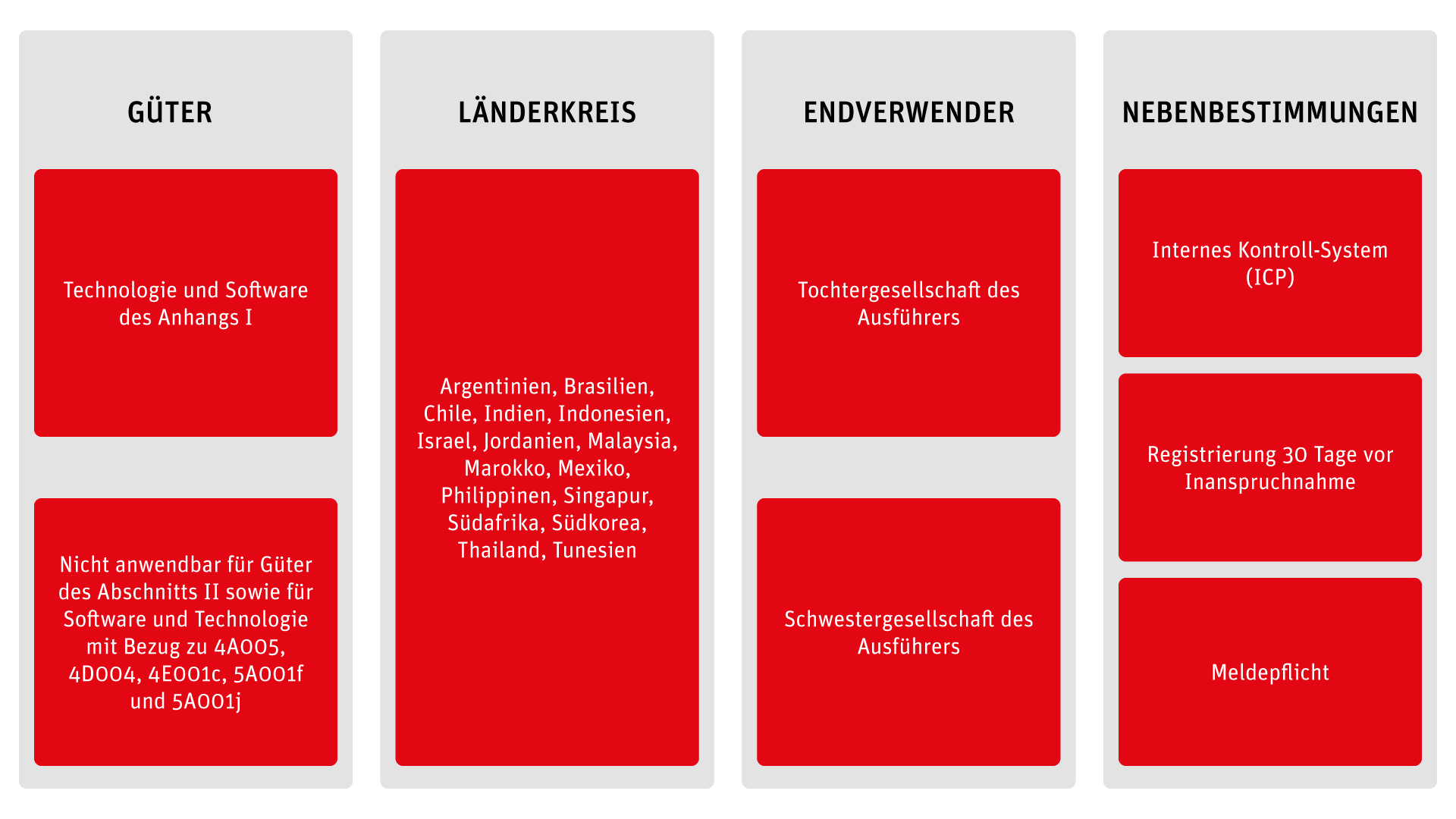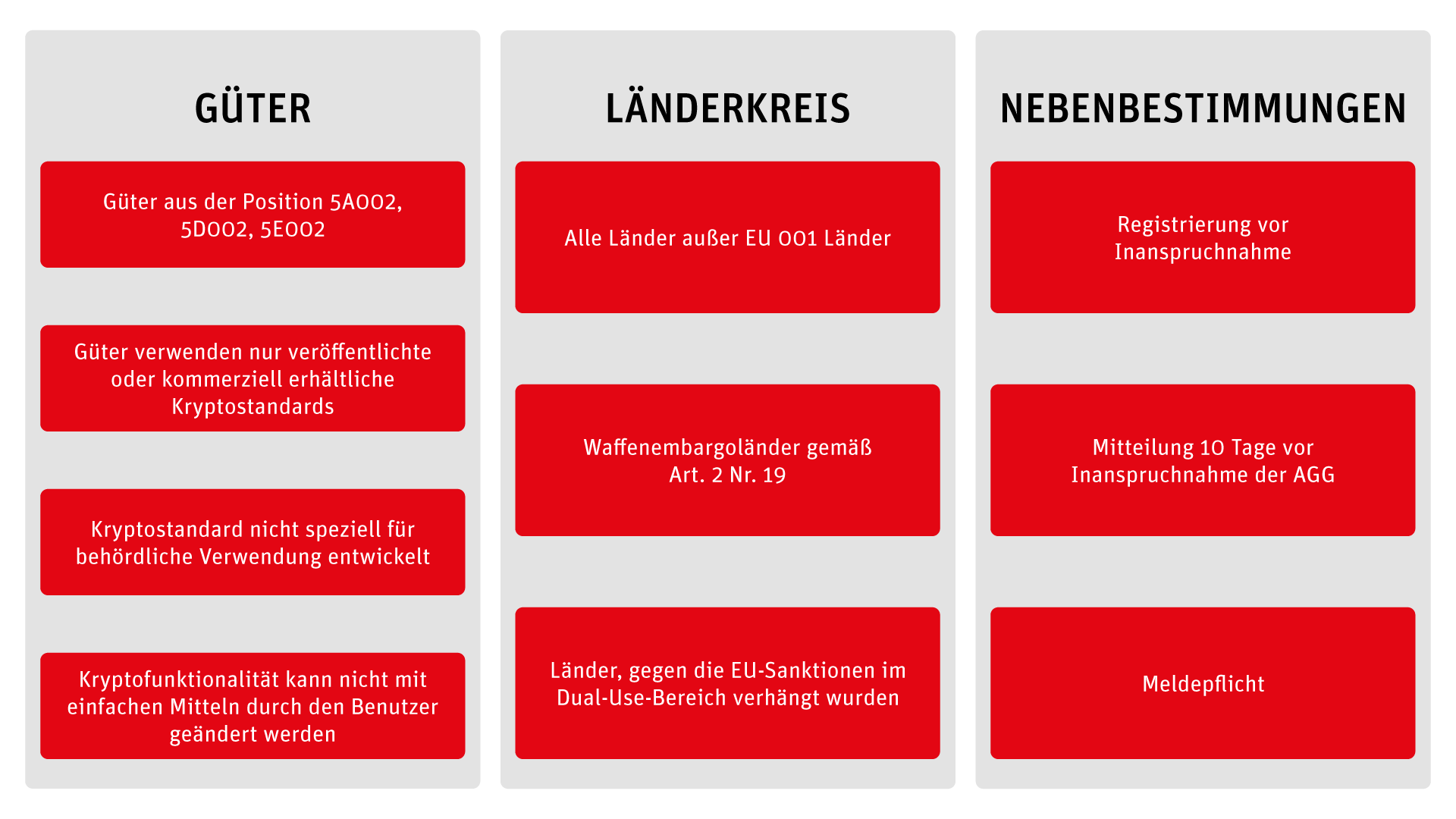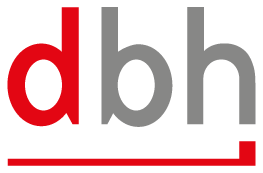The new EU Dual-Use Regulation
What you need to consider in export control
On June 11, 2021, the new EU Dual-Use Regulation 2021/821 was published in the EU Official Journal. This will come into force on September 9, 2021, and will replace EC Dual-Use Regulation 428/2009. Until then, the “old” regulation will continue to apply .
The regulation specifies when and which items that can be used for both civilian and military purposes are subject to licensing when exported.
The four W’s of export control
Export control means checking the so-called four “W’s”:
- What is exported
- Where to export
- Who are the contracting parties/end users
- Why is executed (purpose of use)
Legal changes due to the new regulation arise in the areas of “what is exported” and “why is exported”.
OnDemand Webinar "Dual Use"
In our webinar, our expert consultant Corinna Tamminga will give you an overview of the new Dual-Use Regulation. Watch the webinar directly.
What is exported?
Annex I (listed goods) and Annex IV (EU shipment) of the EU Dual-Use Regulation
The contents of Annexes I and IV of the Regulation remain unchanged. As usual, the next changes are due at the turn of the year.
Foreign Trade and Payments Ordinance
The legal changes, in particular the adoption of the national provisions in the EU Dual-Use Regulation, mean that the German Foreign Trade and Payments Regulation must also be adapted.
The new version provides for facilitations through the introduction of new general licenses (GG) for the export of software and technology requiring a license within the group (No. EU007) and for the export of encryption goods (No. EU008).
New General Permits
EU 007: EU 007 covers the transfer of technology within the Group to certain countries.
What is new is that the exporter who wants to use this General Authorization must implement an Internal Export Control System (ICP Internal Compliance Program). It is legally required that the parent company is located in the European Union or in a country of EU 001. Furthermore, the software/technology must be returned.


EU 008: General License EU 008 is relevant for the export of encryption technology.
Exporters will in future be able to choose between EU 008 and AG No. 18.
Major Project Approval: According to Art. 12 para. 3, BAFA will issue large project permits with longer terms after the new regulation comes into force. This is a subtype of the individual or collective permit. It applies to one exporter and one or more end users.
Why is executed?
Article 4 – Non-listed goods / sensitive uses
The previous catch-all rule states that goods are subject to approval for sensitive uses (i.e., critical land/military use). This regulation remains the same, but the article has been reordered.
Article 5 – Unlisted goods / digital surveillance
The increased importance of respecting human rights is also reflected in the new Dual-Use Regulation. Article 5 also provides for restrictions on unlisted digital surveillance goods. According to Art. 2 No. 20, these are defined as follows: Dual-use items specially designed to enable covert surveillance of natural persons by monitoring, extracting, collecting or analyzing data from information and telecommunications systems.
Affected,
- the export of goods for digital surveillance not listed in Annex I
- if these are in connection with internal repression
- and/or serious violations of human rights or international humanitarian law could be used
- and knowledge of the exporter (within the scope of his due diligence) or information by BAFA exists.
Article 8 – Non-listed goods / technical assistance
Until now, technical assistance was regulated nationally . This has now been incorporated into the Dual-Use Regulation and is thus regulated uniformly throughout the EU:
- Provision of technical support (e.g. repairs, assembly or technical services)
- in connection with goods of Annex I and
- of “knowledge” or “information” (analogous to Art. 4) about use within the meaning of Art. 4 para. 1.
What do you need to do as a company?
You need to deal with the new changes and adapt your in-house export control processes accordingly. If your in-house export control system refers to Article 4, you should check and adjust the numbering due to the restructuring.
The introduction of an ICP (Internal Compliance Program) is recommended, but has not yet been made mandatory. However, the in-house export control system is a prerequisite for applying for an export license at EU 007 and collective licenses. Companies that do not yet have an ICP should familiarize themselves with the topic, as it can be assumed that its importance will continue to grow. The BAFA guide provides good guidance.
Also keep an eye on the national export list for each export. Even though most dual-use items are listed in the Annex to the Dual Use Regulation, in individual cases there may also be a listing and thus a licensing requirement under the national export list (Part I B). This is because the possibility of creating licensing requirements beyond the Dual-Use Regulation through national export lists is also provided for in the amendment to the Dual-Use Regulation.
On the safe side....
…with compliance software from dbh. We ensure that the legal requirements in Advantage Compliance are always up to date. Learn more about Compliance Management with dbh.
Guidelines and fact sheets on the new Dual-Use Regulation
The European Commission will publish guidelines for the main innovations, in particular for the new Article 5 (monitoring technology). This is expected to take place at the turn of the year 2021/2022. The guidelines are intended to take into account the needs of small and medium-sized enterprises.
Until the regulation enters into force, the Federal Office of Economics and Export Control will publish fact sheets to help German companies interpret the new regulation.
On June 14, the Federal Office of Economics and Export Control, together with the DIHK and the Chambers of Industry and Commerce, held an information event on the new Dual-Use Regulation. A recording of this online event and the presentation can be found at this link.
Detailed further information and the corresponding lists of goods can be found on the website of the Federal Office of Economics and Export Control.
BAFA has published another fact sheet on Art.5 of the Dual-Use Regulation, which you can access on BAFA’s website. You can find an overview of BAFA’s fact sheets here.
Your contact to dbh
You have a question?
Then simply use our contact form.
Your contact to our sales department
Your contact to the dbh sales team
+49 421 30902-700 or sales@dbh.de
Do you use one of our products and need support? Our support team will be happy to advise you.



